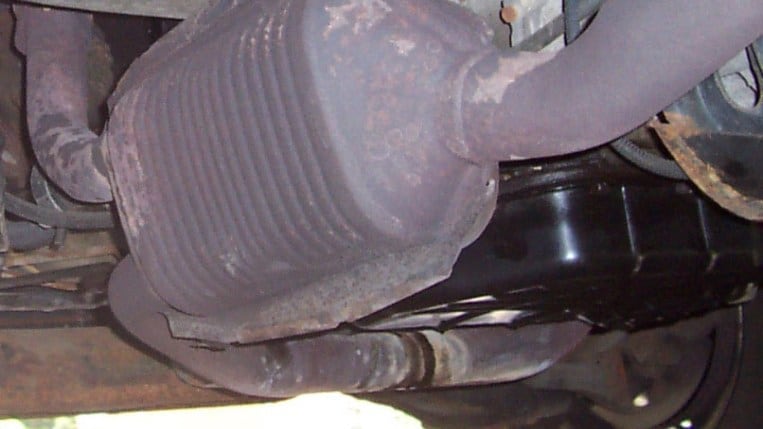
Why?
Because of the price of a rare metal called palladium.
We’ll explain.
Your car’s exhaust system includes a part known as a catalytic converter. It’s a metal box a little larger than a loaf of bread placed on the exhaust ahead of the muffler, usually near the car’s center. Its job is to scrub pollutants from the exhaust gases, which it does with a honeycomb of rare metals that trigger chemical reactions trapping some pollutants.
One of those metals, palladium, cost about $500 an ounce five years ago. It cost about $2,600 an ounce five months ago. It cost about $3,400 an ounce earlier this week.
Russia is the world’s leading supplier of the rare metal. But trade restrictions many countries have enacted in response to the war spooked markets, sending the price soaring. That has law enforcement sources warning that a wave of catalytic converter theft could be coming.
Pandemic Triggered an Earlier Wave
Catalytic converter theft quadrupled during the COVID-19 pandemic. Thieves can remove the devices quickly — usually sliding under the car and cutting them out with a reciprocating saw in a matter of minutes. The precious metals in a converter degrade over time, so new cars make the most profitable targets.
The Highway Loss Data Institute has reported that Toyota Prius hybrids were at particular risk, thanks to their unusually large catalytic converters. Some police departments have noted that trucks and large SUVs also make enticing targets since they are higher off the ground and easier for thieves to slide underneath.
How to Protect Your Car
If you’re worried about protecting your catalytic converter, the best step you can take is to park indoors.
If that’s not an option, law enforcement sources recommend parking in well-lighted areas and perhaps installing a security camera. Many auto parts stores sell devices designed to make removing a converter take too long to be worth the risk, but we’re aware of no studies that examine whether these devices deter theft.







